If Docker was first developed for Linux, the Docker Desktop development environment has since also established itself on Windows platforms. Discover with us the prerequisites and installation steps for Docker on Windows 10, to develop and test your applications in isolated containers.
Docker Desktop for Windows 10: technical specifications¶
Docker Desktop provides you with all the tools you need to run Docker applications on your desktop, including Docker Engine, Docker Command Line Interface (CLI) tools, and Docker Compose. It also offers other capabilities, such as automatic image uploading, container sharing via the Cloud, and integration with Integrated development environments (IDE) and build tools .
Furthermore, Docker Desktop is free if you don’t use it for commercial purposes. It can be downloaded from the official Docker website. Both powerful and flexible, this platform helps developers create applications quickly and efficiently.
To use Docker, you need to enable virtualization in Windows, because container technology requires a Linux kernel, this coming from a virtual machine (“Virtual machine” or VM). It is important to note that Windows Professional and Enterprise systems support both Hyper-V and Windows Subsystem for Linux 2 (WSL 2) as virtualization approaches. However, when it comes to Windows Home, it is necessary to go through WSL 2 to run Docker Desktop.
Your Windows 10 system must meet the following prerequisites to ensure successful installation of Docker:
- Processor (CPU) : 64 bits with second level address translation (SLAT)
- RAM : 4GB
- Operating system : Windows 10 Home, Professional or Enterprise
- Virtualization : Hardware virtualization must be enabled in the computer’s Basic input/output system (BIOS).
- Hyper-V : optional for Windows Professional or Enterprise
- Windows Subsystem for Linux 2 (WSL 2) : it should be activated for Windows Home
- Hard disk space : 20 GB minimum
- Internet connection : sufficient to download packages
A Cloud server offered by IONOS always remains flexible to adapt to your needs. The Cloud services offered by IONOS offer you powerful computing power and unrivaled availability, whatever your requirements.
Install Docker on Windows 10: step-by-step instructions¶
There are two solutions to install Docker on Windows 10: you can use installation wizard with graphical user interface or command line. Discover with us the two methods applicable to all editions of Windows 10.
Step 1: Download and Run Docker Desktop¶
Go to Docker Hub to download the official version of Docker Desktop. Once the download is complete, run the file Docker Desktop Installer.exe. If your system supports both Hyper-V and WSL 2, you should choose one of these two methods. If Hyper-V or WSL 2 is activated, only one possibility will be displayed. You also have the option to create a shortcut to your desktop.

The installation process can then begin.
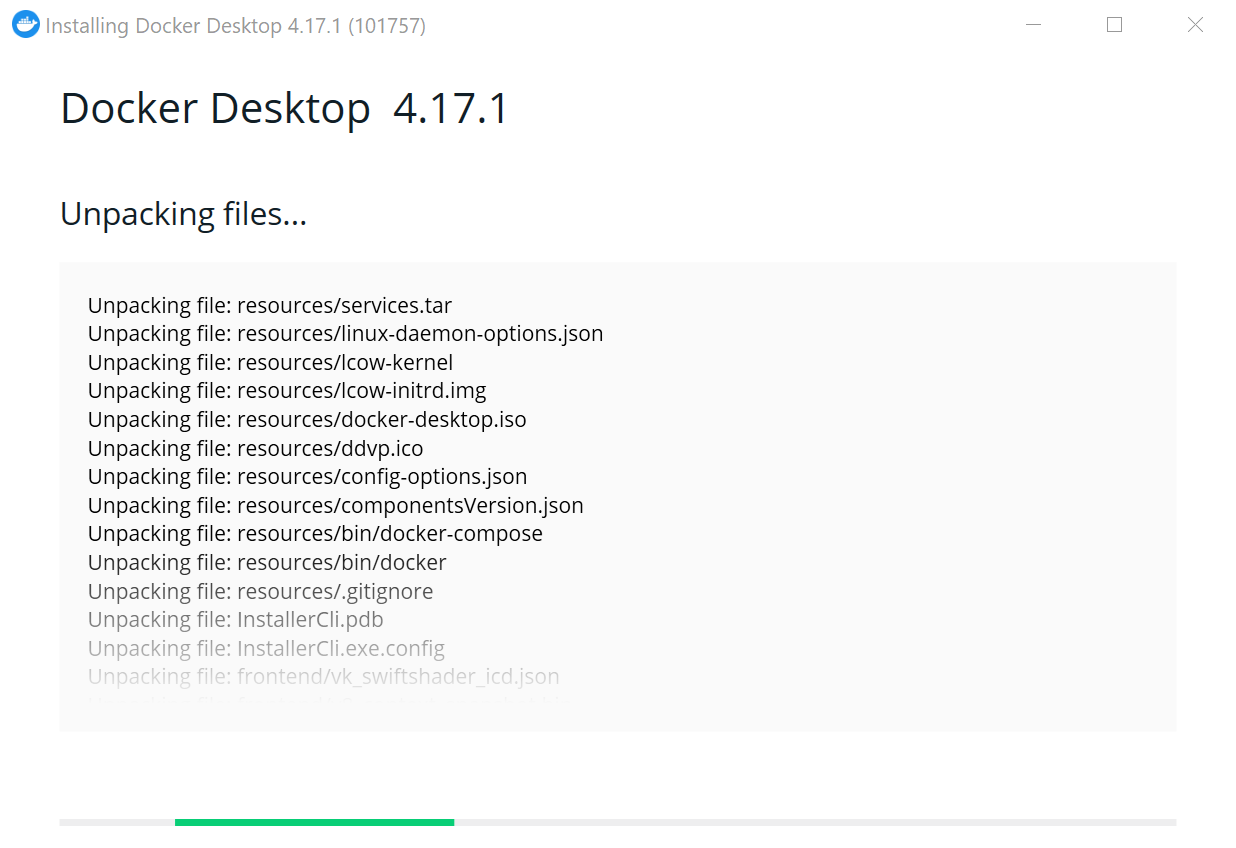
You can also use the command line to install Docker on Windows 10. All you need to do is enter the following command in a terminal :
$ "Docker Desktop Installer.exe" installshell
It is also possible to go through PowerShell for installation:
Start-Process ‘Docker Desktop Installer.exe’ -Wait installpowershell
You can use the Windows command line (cmd) similarly for the installation:
start /w "" "Docker Desktop Installer.exe" installcmd
The virtual dedicated servers (“Virtual private server or VPS) offered by IONOS allow you to access performance at an advantageous cost and in a completely virtual environment. Designed to provide maximum security, these servers support Linux as well as Windows. Launch your web project today with VPS hosting from IONOS.
Step 2: Restart Windows¶
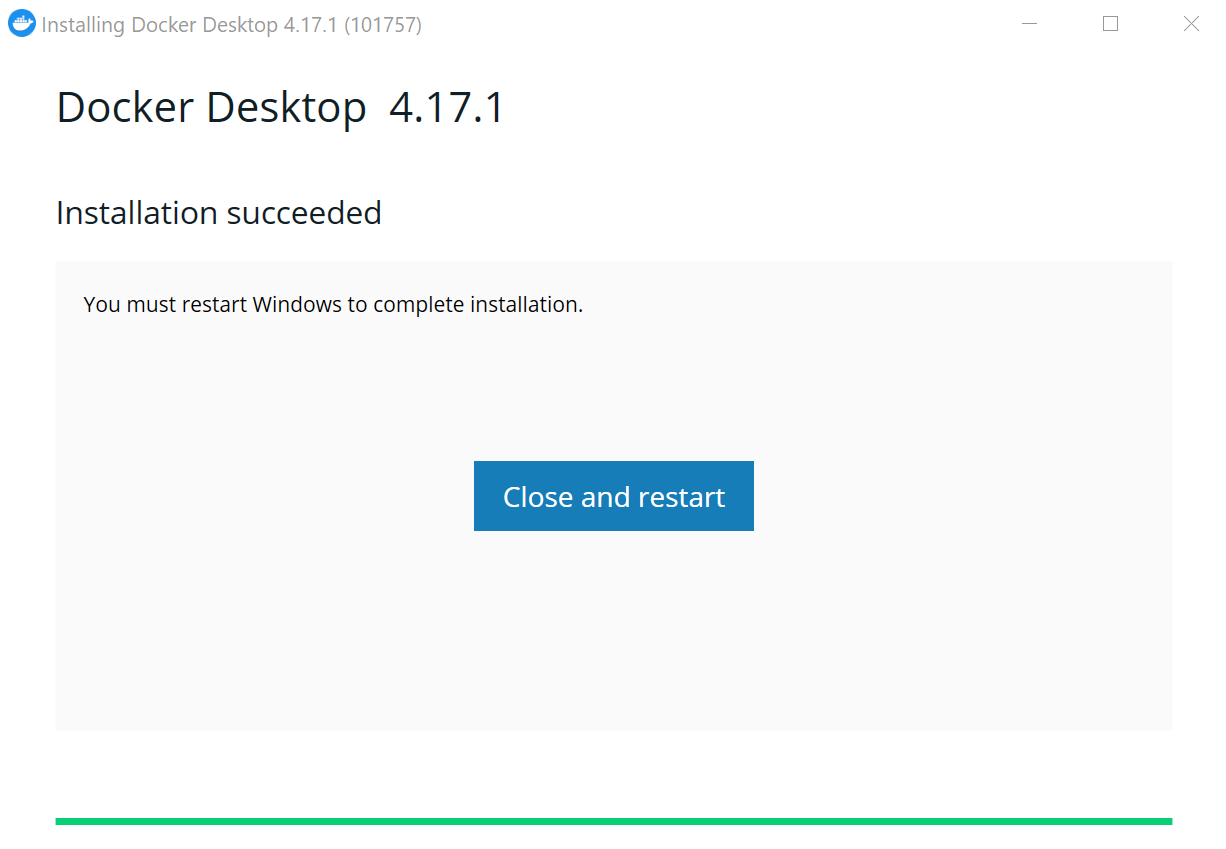
If the administrator’s account is not the same as the user’s account, you must add the latter to the group docker-users. To do this, go to “Computer Management” as administrator, then to Local Users and Groups/Groups/docker-users. You can add the user to the group using a right-click. You must then log in again so that the change is taken into account.
You can achieve the same effect using the terminal. Instead of
$ net localgroup docker-users <user> /addshell
Step 3: Start Docker Desktop¶
Once the system has restarted, launch Docker Desktop and run your first container. The window that opens gives you access to the Docker tutorial.
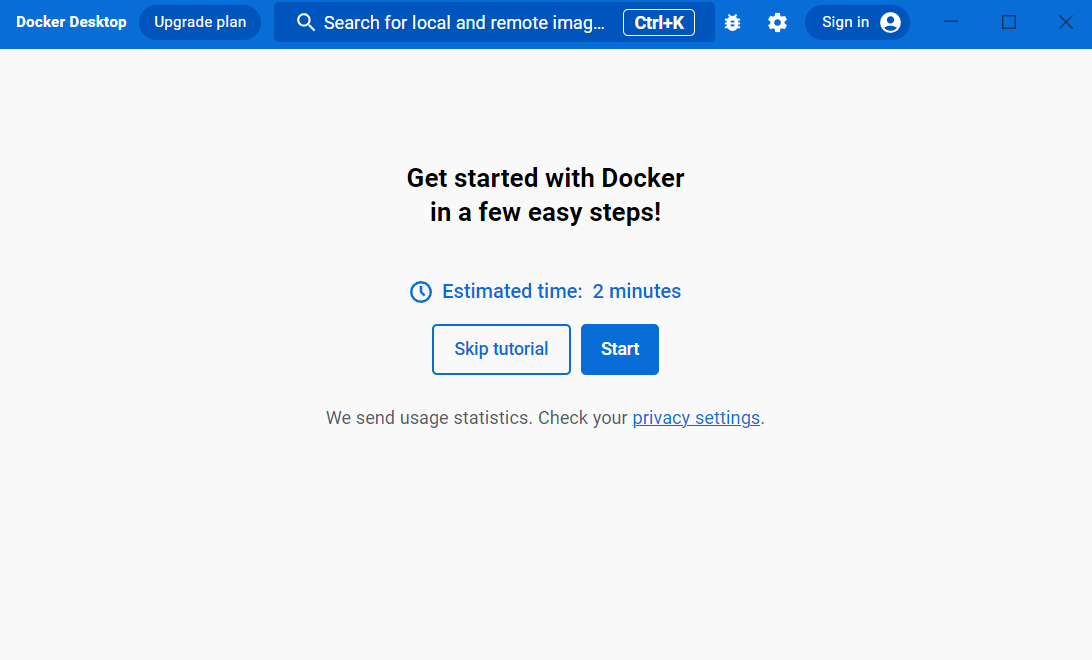
Once the installation is complete, Docker commands are also available to you in the command line.
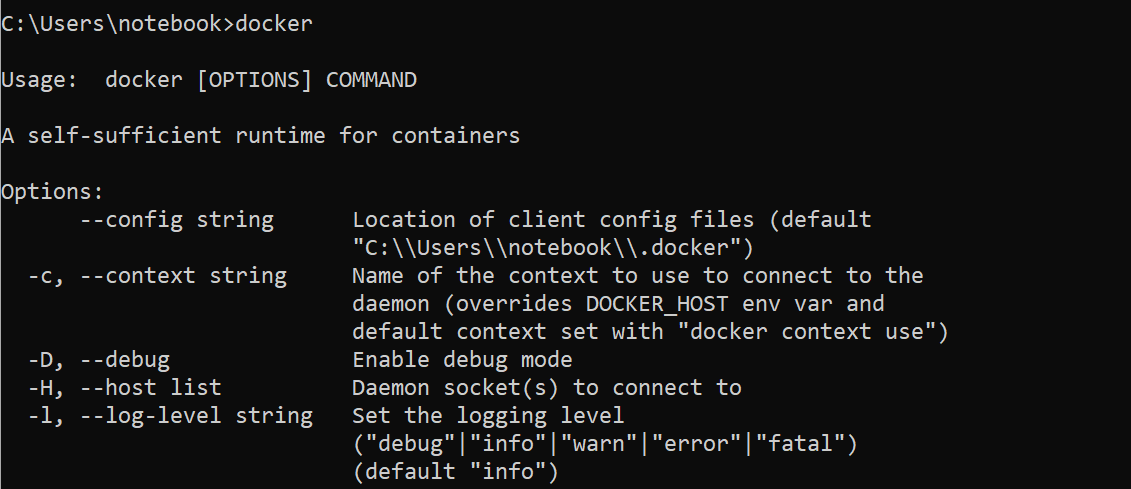
You can directly download and launch Docker images through the Docker Desktop user interface. Enter the name of the application in the search bar, then click “run”. For our example, we chose the HTTP server Nginx.
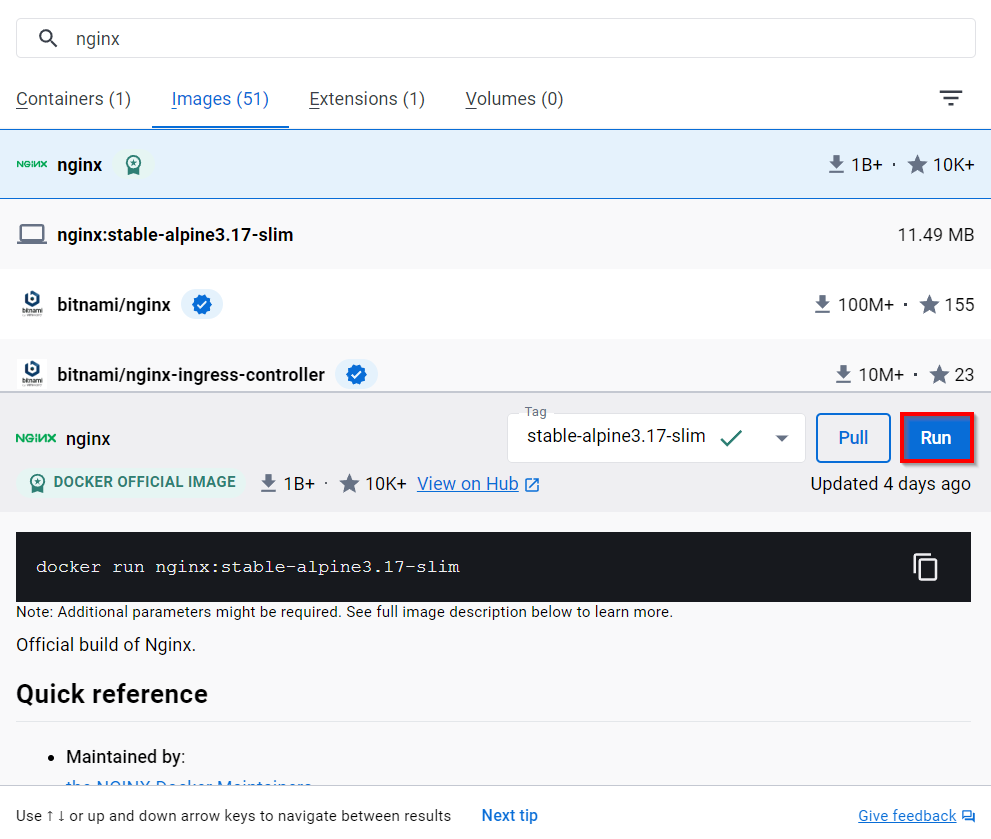
In your browser, under http://localhost:80/you can verify that the “nginx” Linux container is running on your Windows 10 system.
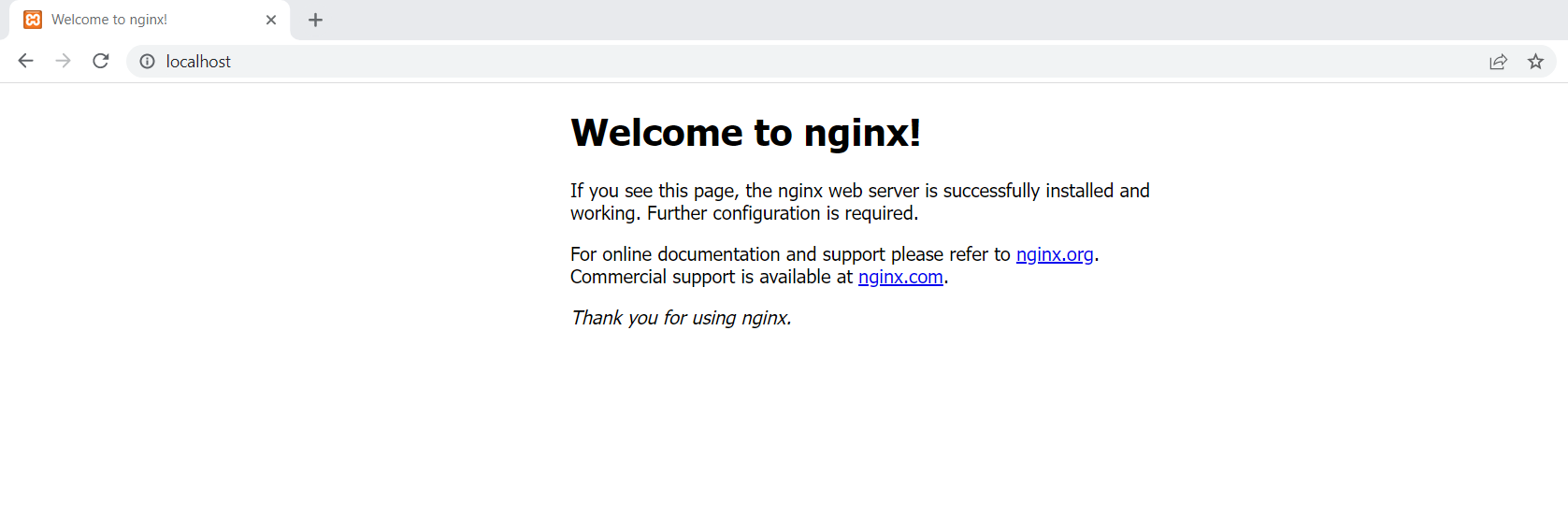
With dedicated servers offered by IONOS, manage ambitious websites with a high-performance graphics processor and cloud integration. Take advantage of hardware solutions that are entirely dedicated to you, as well as per-minute billing.
Do you prefer to use Linux? Do not hesitate to consult our instructions to find out how to install Docker on Ubuntu 22.04 or how to install Docker on Debian 11.




